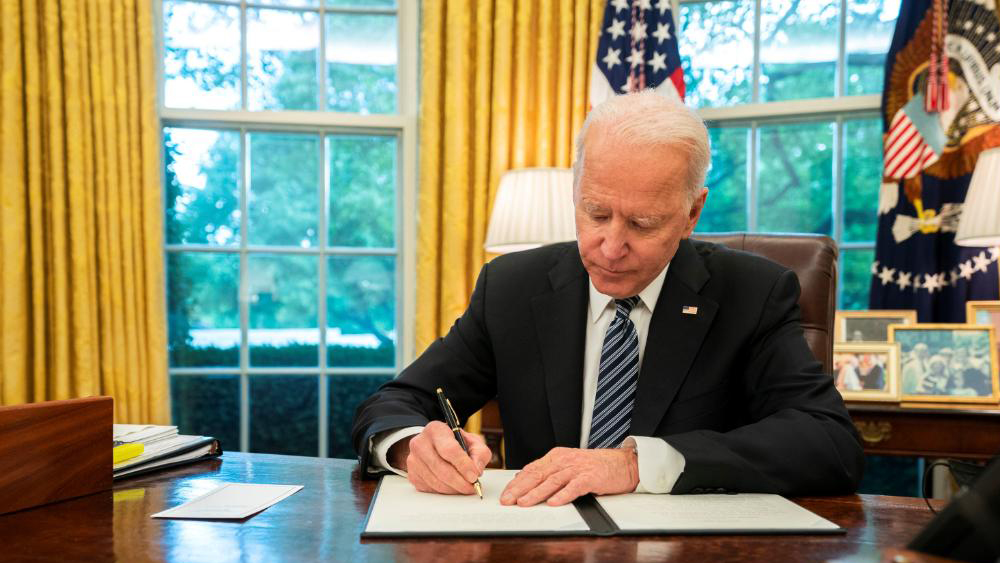- An Alliance For Community Action
- (970) 256-7650
- info@WesternColoradoAlliance.org
What Biden’s “pause” means for us
What Biden’s “pause” means for us

[NOTE: This week, a U.S. district judge in Louisiana issued an order temporarily blocking the Biden administration’s pause on new oil and gas leasing on public land and waters. Western Colorado Alliance and our partners are considering our legal options. We’ll have more to say on this soon.]
Since the last publication of The Clarion, our Alliance has carefully monitored the evolution of the Biden Administration’s policy toward oil and gas development on federal lands. President Biden has signalled that he intends to take major steps toward reducing the United States’ carbon footprint, which is largely encapsulated in his goal of conserving 30% of America’s lands and waters by the end of 2030 (the 30×30 plan). To that end, the administration has issued a temporary pause on leasing to oil and gas operators until an evaluation of the federal government’s approach to managing fossil fuel production on public lands is completed.
This evaluation comes at a crucial point for the United States both domestically and abroad. America is second only to China in terms of producing carbon emissions — a dubious position from which to reclaim moral authority to lead global cooperation to address climate change. Meanwhile, the Biden administration must tend to the economic needs of a nation that is both still struggling to recover from the impact of COVID and spooked by a cyber attack in May that temporarily shut down a major fuel pipeline on the East Coast.
The oil and gas industry has seized both the pandemic and the fuel disruption as talking points to push back against the federal pause on leasing, claiming that the move increases U.S. dependence on foreign energy production and is costing the nation jobs and economic development opportunities. Curiously, they don’t tend to mention the large number of leases that have already been stockpiled by operators throughout the United States which are projected to keep production at current levels for years to come.
Last year, Senator Michael Bennet introduced two key pieces of legislation that would tie federal dollars for plugging and reclamation of wells throughout the U.S. to more robust bonding standards, and would improve both transparency and local involvement in leasing decisions overseen by the Bureau of Land Management. In the House, Representative Fernández has introduced legislation that also seeks to address orphaned wells, which includes an annual fee for idle wells on public lands.
For those of us living in Western Colorado, these changes cannot come soon enough. Last year, The Washington Post reported that the average temperature along the Colorado/Utah border had risen over 2 degrees centigrade — over double that of the rest of the nation. This is particularly troubling for a region that has been gripped by historic drought for the last 20 years. That the snowpack generating southwest Colorado’s headwaters has measured at less than 40% of its typical capacity this year does not bode well for residents in the region.
With the stakes so high and the overwhelming majority of federal land in Colorado located in the western side of the continental divide, it is imperative that residents have a say in how the federal government proceeds with its management of fossil fuel production, and limits future greenhouse gas emissions. Our Alliance will continue to be at the forefront of this effort, pressing for stronger protections and transparency in the process.
Our way of life depends on it.
Brian joined Western Colorado Alliance as a community organizer in April 2020. With a professional background in elections and the court system, Brian specializes in working with our partners to shape oil and gas policy. Having grown up on the Western Slope, he is committed to working toward a strong, sustainable future for our community. Brian also volunteers with Mesa County Library’s literacy and pathway to citizenship programs. As an avid board game enthusiast, he enjoys opportunities to strategize and build winning coalitions. Brian received his bachelor's degree in political science from Colorado Mesa University, and his master’s degree in public administration from the University of Colorado Denver’s School of Public Affairs.

